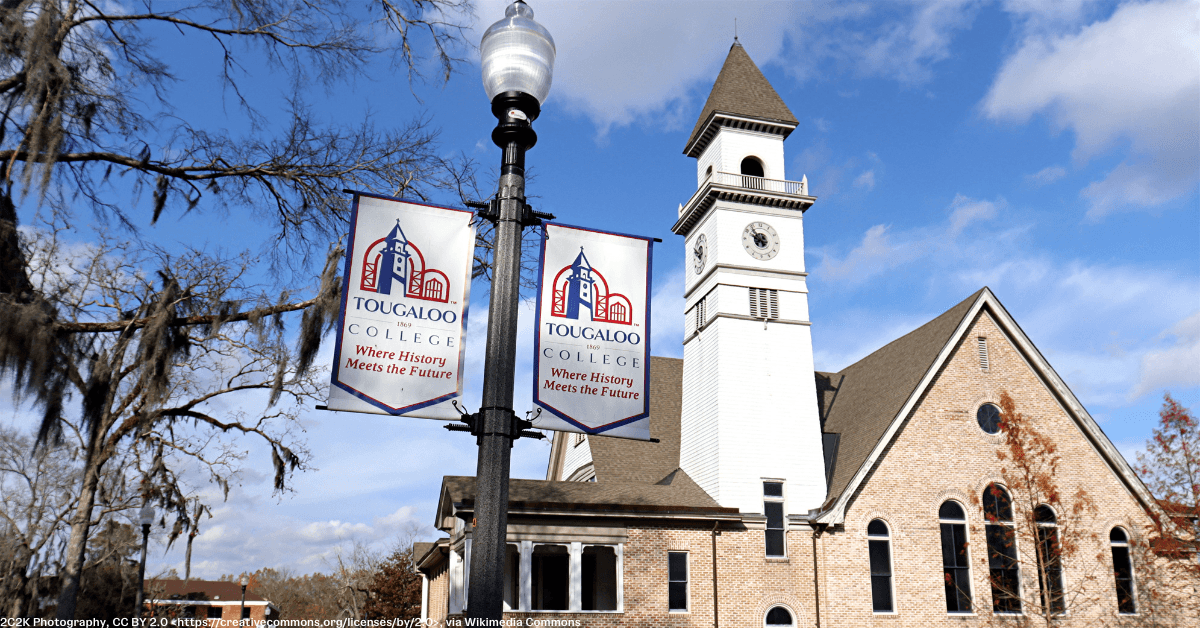KEY INSIGHTS:
- More than one-third of HBCUs have received bomb threats this year.
- The Biden Administration announced in March HBCUs affected could apply for grants.
- Leaders are frustrated that schools had to apply even when it was known they’d been threatened and that no arrests have been made.
At the beginning of this year, HBCUs were plagued by a spate of bomb threats that disrupted classes and made students, staff and faculty fear for their lives. Now, federal aid is finally starting to arrive, but for some HBCUs, disappointment and frustration still linger.
Last Monday, the Southern University Law Center (SULC) announced it had received a grant from the U.S. Department of Education to support student recovery from the threats — the first HBCU to receive this funding.
“This grant will allow SULC to address the mental health consequences related to bomb threats and trauma during these tumultuous times,” John Pierre, chancellor of the Southern University Law Center, said in a statement.
The funding to help HBCUs impacted by the threats was first announced by the Education Department in March. Schools were eligible to apply for grant funds under the Project School Emergency Response to Violence (Project SERV) program and awards typically range from $50,000 to $150,000 per school.
In Pierre’s statement, he specifically thanked two of the faculty members who researched and applied for the Project SERV funding to SULC. But for some HBCU presidents, the fact that they needed to apply at all when the threats made against them were well-documented was an affront.
Grants were just a ‘bone,’ president says
On February 16, Claflin University alerted students to shelter in place because someone was threatening their lives.
“The amount of hate that was in that call, the amount of disgust,” Dwaun Warmack, president of Claflin, told reporters at a dinner with other HBCU presidents in D.C. earlier this month. “How many times was the word n****r mentioned in that call? ‘You n*****s will die today,’” he recounted.
These bomb threats were all forms of racialized violence. In the cases of at least Bethune-Cookman University, Arkansas Baptist College, Philander Smith College and Shorter College, the threats were called in by people claiming to be neo-nazis, according to local Florida and Arkansas police officials.
To receive federal aid, schools had to put in an application, which frustrated some leaders.
“Why do I have to apply for a grant when you know I had a bomb threat?” Carmen Walters, president of Tougaloo College, told reporters at the D.C. dinner. “I think it is a complete joke. I think the grant process was just the way to say, ‘Okay, here’s a bone, now stop crying, stop complaining.”
Warmack agreed. He said initially, to apply for the grants, schools had to fill out a three to five-page assessment that felt like it blamed the schools for having received a bomb threat in the first place. He wrote a letter to the administration outlining his disapproval and they apologized and dropped the assessment, but it marked how disappointing the grants were for him.
However, federal officials say this administration has delivered more funding to HBCUs than any other and promise more funding is on the way.
“The Biden-Harris Administration strongly condemns threats to our nation’s Historically Black Colleges and Universities, and remains fully committed to providing HBCUs with the resources and support they need to ensure students’ safety and their academic success,” Dietra Trent, executive director of the White House HBCU Initiative, said in a statement to The Plug.
Investigation underway, but still no arrests
Eight months into the year, no arrests have been made for the threats and no suspects have been named. The FBI told Politico that the bureau was working with 34 field offices on the investigation, which started immediately after the first bomb threat this year.
“I’m very angry that no one has been brought to justice, but there’s been no conversation with us about the investigation at all,” Walters said.
Warmack thinks the lack of arrests has led to copycats issuing more threats to HBCUs. All told, more than one-third of HBCUs have received threats, mostly in the first few months of the year. But they have only slowed, not stopped. On August 12, Howard University evacuated buildings at its medical school after a bomb threat.
“The FBI and Department of Homeland Security have held multiple briefings with relevant university leaders and security officials to hear directly from them and to share information,” Trent said in her statement to The Plug.
“We will continue to work closely with our federal partners to make sure HBCU leaders have access to all available federal resources to respond to threats of violence, strengthen campus security, and provide students with the safe and nurturing learning environments that have defined HBCUs.”








